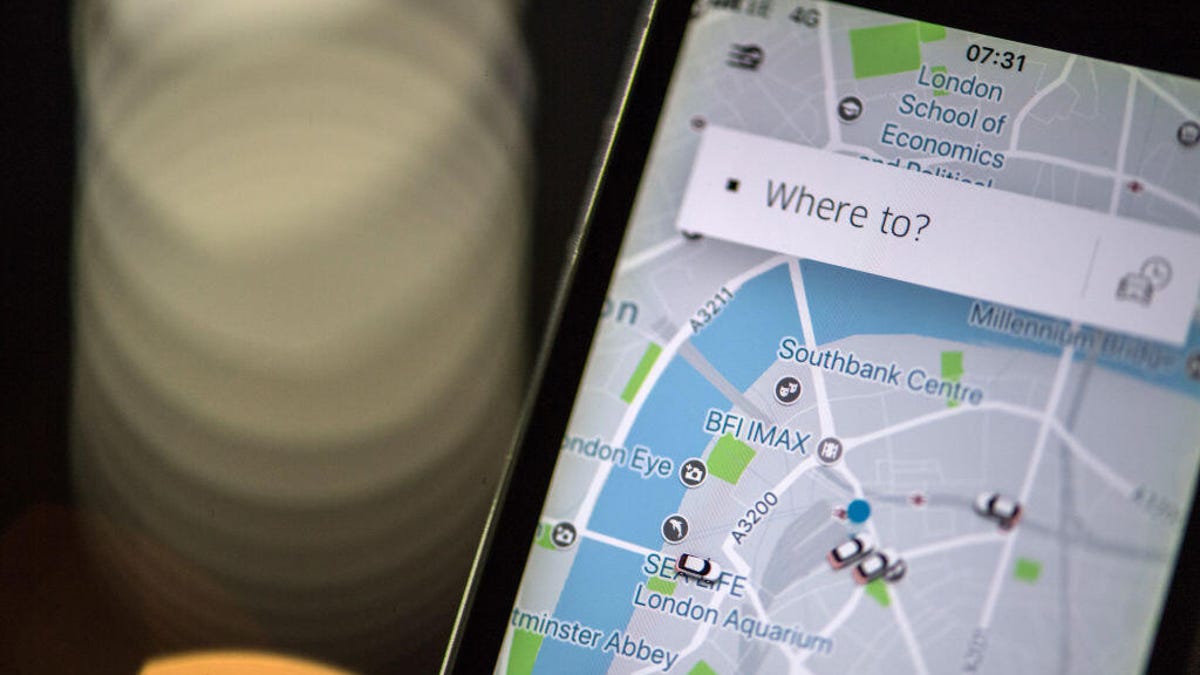Uber wins new London license following lengthy legal battle
The ride-hailing company lost its license to operate in London in 2017 due to safety issues, but is now fully back in business.

Uber has regained the license it lost back in 2017.
Uber scored a victory in the UK on Monday when a judge granted it a new license to operate in London , deeming it "fit and proper." The company has been engaged in a three-year legal battle in the British capital after losing its license in 2017 due to safety concerns.
In a ruling issued at Westminster Magistrates' Court, the judge agreed that Uber could be issued a license to operate in London for the next 18 months, after which time it will be reviewed.
"ULL [Uber London Limited] does not have a perfect record but it has been an improving picture," said the judge, Tan Ikram. "The test as to whether ULL are a 'fit and proper person' does not require perfection. I am satisfied that they are doing what a reasonable business in their sector could be expected to do, perhaps even more."
The Silicon Valley-based ride-hailing company was already a well-established player on London's private hire scene back in September 2017, but when its license came up for renewal its request was denied over safety and security issues, as well as "a lack of corporate responsibility." The company appealed the decision and has managed to keep operating in the city for the past three years while the legal battle played out, even introducing Jump Bikes and taking over the running of London's Thames Clipper commuter boat service.
The concerns that were raised about Uber's operations in London were not unique to the city, and had already resulted in the departure of CEO Travis Kalanick in June 2017. New CEO Dara Khosrowshahi embarked on a major charm offensive in Europe and also made some fundamental changes to the business, including introducing a slew of new safety features to keep passengers and drivers safe.
See also: Your guide to the best ride-hailing services
Last November, London's transport regulator TfL rejected Uber's application for a new license after discovering unauthorized drivers had been able to upload their photos to legitimate accounts in order to pick up passengers. The judge concluded that these concerns had now been "adequately addressed" by the company.
"As a result of our decision in November last year Uber has implemented a number of changes to improve passenger safety and address the issues we identified," said a spokesman for TfL. "This 18-month licence with a number of conditions allows us to closely monitor Uber's adherence to the regulations and to swiftly take action if they fail to meet the required standards."
Uber's new license to operate in the UK capital has a total of 21 conditions that were jointly suggested to the magistrate by TfL and Uber.
"This decision is a recognition of Uber's commitment to safety and we will continue to work constructively with TfL," said Jamie Heywood, Uber's regional general manager for Northern and Eastern Europe. "There is nothing more important than the safety of the people who use the Uber app as we work together to keep London moving."
The Licensed Taxi Drivers Association, which represents drivers of London's iconic black cabs and has been a long-term opponent of Uber, called the decision a "disaster for London," in a statement issued on Twitter.
Uber is still facing a separate legal battle in the UK over whether its drivers, who are classed as contractors rather than employees, deserve employment protections including minimum wage and holiday entitlement.

